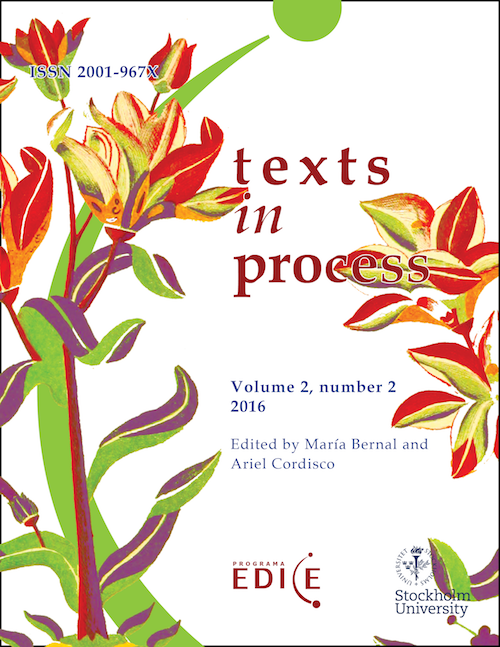Press releases after forty years of the last coup d'etat in Argentina
Abstract
What social representations are currently circulating about the last coup d’état in Argentina? Almost twenty years ago, we set out to answer this question by analyzing how the national press reconstructed the main events, actors and cause-effect relationships in referring to the last Argentine military dictatorship. At that time, we set up a corpus with the central news of the moment which had been published by the morning press to commemorate the 20th anniversary of its beginning, on March 24, 1996 (Zullo, 1999). Over the last few years, the question has given rise to other research that addressed pedagogical materials produced for students and primary school teachers (Zullo, 2014, among others). However, the 40th anniversary of the beginning of the dictatorship invites us to rethink the question and to return to what we concluded many years ago. In order to do so, we study a corpus of Clarín and La Nación editions of March 24, 2016 from a global perspective; we undertake a comparative analysis of two editorials that are articulated in three levels: first, the design and the formal organization of the texts and the graphic information of printed editions (Kress and van Leeuwen, 1996), dealing with the macroestructural organization of news (van Dijk, 1978); secondly, the axis of the syntactic-semantic organization of the utterances of two articles of opinion from which we determine the participants, processes and circumstances, as well as the frequencies and types of transformations and the processes of over-lexicalization present in these texts (Hodge and Kress, 1993); thirdly, the enunciative dimension (Ducrot, 2001) of these articles, which gives rise to certain types of questioning that both newspapers make to the authorities and to civil society (Trew, 1979). Beyond the differences with respect to the journalistic versions of twenty years ago, we find significant contrasts in the ways of presenting and organizing information in these newspapers in 2016. However, the systematization of these linguistic differences does not allow us to establish ideological differences, since both diaries contribute to the same ideological formation throughout different linguistic strategies (Pechêux-Fuchs, 1975).
Downloads
References
Borrat, H. (1989). El periódico, actor político. Barcelona: Gustavo Gili.
Crenzel, E. (2013) El prólogo del Nunca Más y la teoría de los dos demonios. Reflexiones sobre una representación de la violencia política en la argentina. Contenciosa. Año 1. N°1. Universidad Nacional del Litoral. (1-19). Recuperado el 8 de junio de 2017 de http://contenciosa.org/Sitio/VerArticulo.aspx?i=9
Hodge, R. y Kress, G. (1993 [1979]). Language as Ideology. London: Routledge.
Kress, G. y Van Leeuwen, T. (1996). Reading Images. The Grammar of Visual Design. London: Routledge.
Sigal, S. y Verón. E. (1986). Perón o muerte. Los fundamentos discursivos del fenómeno peronista. Buenos Aires: Hyspamérica.
Van Dijk, T. (1983). La ciencia del texto. Barcelona: Paidós.
Van Leeuwen, T. (2008). Discourse and Practice. New York: Oxford University Press. https://doi.org/10.1093/acprof:oso/9780195323306.001.0001
Véliz, M. (1999). Complejidad sintáctica y modo del discurso. Estudios filológicos, (34), pp. 181-192. Recuperado de:
http://www.scielo.cl/scielo.php?script=sci_arttext&pid=S0071-17131999003400013 (30-04-2016).
https://doi.org/10.4067/S0071-17131999003400013
Zullo, J. (1999). A veinte años del golpe de Estado. Las lecturas de la prensa desde la Lingüística Crítica. En Raiter, A., Zullo, J., Pérez, S., Unamuno, V., Labonia, I., Muñoz, I. (Eds.) Discurso y ciencia social. Buenos Aires: Eudeba, pp. 25-38.
Zullo, J. (2014). El golpe de Estado llega al aula. Las versiones para niños de la historia reciente. Discurso y Sociedad. 8 (1), pp. 12-36.
Zullo, J. (2016). El análisis del discurso. Algunos supuestos, algunas herramientas de trabajo. En Raiter, A. y Zullo, J. (Eds.) Al filo de la lengua. San Fernando: Edicionales La bicicleta, pp. 37-59.

Copyright (c) 2016 Julia Zullo

This work is licensed under a Creative Commons Attribution 4.0 International License.
Texts in Process (TEP) is a non-commercial open-access scholarly journal governed by a Creative Commons Recognition 4.0 International license. It follows a full and unrestricted open access, without charges or fees for shipping, reviewing, processing and publishing articles. Users can read, download without registering, distribute, print or link the complete texts of numbers and articles, without the permission of the editors or authors. There is also no charge to publish (APCs), being applicable to the entire editorial process. The authors retain their intellectual rights at all times.
ASICE-EDICE Programme has always believed that non-commercial, open, unlimited and unrestricted access to specialized academic publications is a vehicle for academic freedom and scientific rigor. It adheres and shares the Declaration of Mexico and DORA to guarantee the protection of academic and scientific production in Open Access.
















